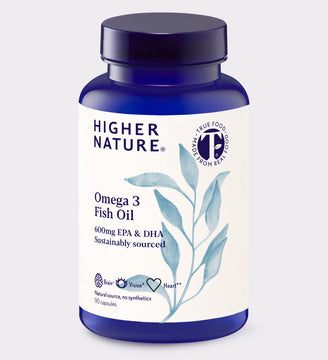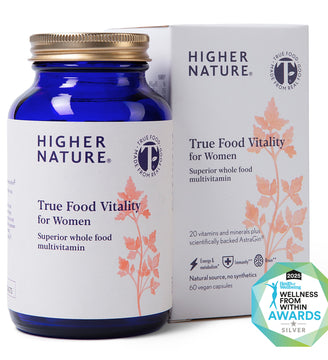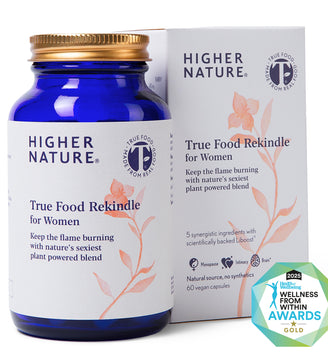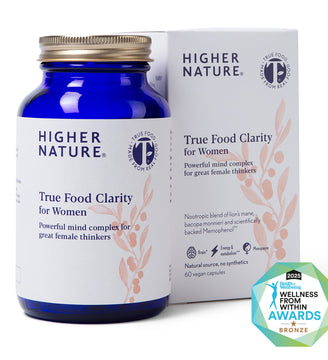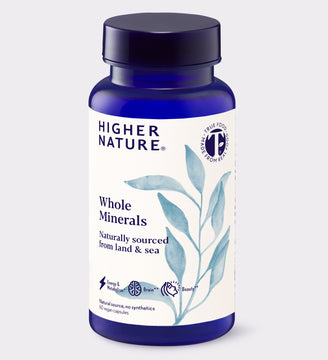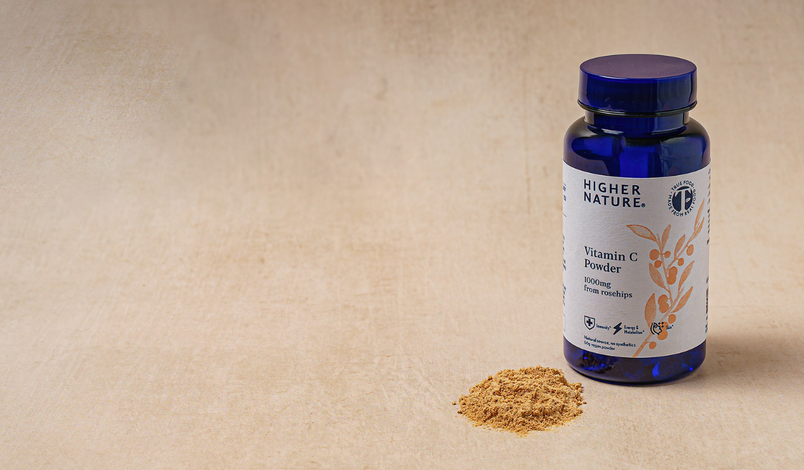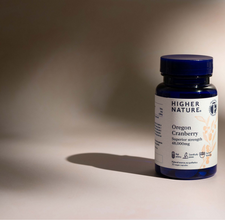
Let’s discuss adult ADHD
Higher Nature Nutrition Team
Raise the topic of ADHD in the past would likely bring to mind images of fidgety, impulsive children with poor attentions spans in the classroom, but perception is rightly changing and evolving. This neurodevelopmental disorder having been previously under diagnosed is increasingly recognised in adults too and across the genders, affecting somewhere between 2-5% of adults according to health experts.
This often challenging disorder involves reduced dopamine and noradrenalin, key neurotransmitters, resulting in less activity and less connectivity between areas of the brain.
Thought to be underpinned mostly by genetics but also environmental and social factors, symptoms include:
- Lack of focus or hyper focus/fixation
- Impulsivity
- Risk-taking
- Low motivation/boredom
- Being easily distracted
- Finding it hard to listen to others
- Disorganisation
- Procrastination
- Difficulty meeting deadlines or time planning
- Forgetfulness
- Restlessness
- Fluctuating emotions and mood
- Anxiety
ADHD is classified into three types; predominantly inattentive, predominantly hyperactive/impulsive or more commonly, and accounting for around two thirds of those affected, a combination of the two.
Might nutrition and lifestyle play a role?
Studies have linked low levels of omega 3 fatty acids EPA and DHA to those with the disorder. Modern diets too are often low in these essential fats which can’t be made by the body and must be included in the diet and may exacerbate the problem. Needed for brain function, they help regulate neurotransmitter function. To increase your levels, eat oily fish 2-3 times a week or add in a high strength supplement to provide both EPA and DHA. Fish oil is best as it provides both EPA and DHA but flax seed oil is a good alternative for vegetarians and vegans.
Low levels of zinc are also implicated, being necessary for cognitive function. Other research found that taking a multinutrient improved general functioning and emotional regulation, so either pick a zinc containing multivitamin and mineral or try zinc on its own. Eating a diet based around wholegrains, vegetables, fruit, nuts and seeds and good protein sources provides a good base too and will be nutrient dense.
Avoiding sugary foods and stimulants like caffeine is also thought to be beneficial. These both cause blood sugar dysregulation which can increase feelings of stress and anxiety, trigger mood fluctuations, and add to the feelings of restlessness and heightened activity.
Theanine, the amino acid found in green tea is also under investigation, increasing focus whilst also promoting a sense of calm.
Other promising nutrients include phosphatidyl serine, acetyl-l-carnitine and ginkgo, as well as live bacteria whose ability to modulate brain activity and mood via the gut microbiome is currently under close scrutiny. Improvements to gut flora reduced inattention, hyperactivity and impulsivity. Add in live yoghurt or kefir to boost your levels or add a live bacteria supplement to your daily essentials.
Mindfulness and relaxation have been shown to be beneficial, helping reduce anxiety and depression and increasing attention. There are numerous free resources from Apps to checking out videos or even your local library for books or GP surgery for courses. What suits you will be personal to you so try out a few and see what fits.
Exercise is also helpful, promoting dopamine release which also improves attention and executive function and cognitive control of behaviour. Sufferers are encouraged to let off steam with activities such as dancing or sport.
On a more practical level day to day disorganisation and procrastination may be helped by other tools such as keeping lists, diaries and planners, and dividing projects into bite size chunks to make them more achievable. Try searching for Apps to help so that help is at your fingertips. These could be really useful for the working or studying environment but also in your home life with daily tasks.
Understand your triggers, or things or situations that make it worse. Lack of sleep and high levels of stress are common triggers and often overlooked, but consider too situations which are stimulating. Social situations for example or too much screen time can be overstimulating so try to anticipate these and think about strategies to manage them.
Finally, share with family, friends and work colleagues. This helps those around you to understand how it affects you, but also brings you allies in manging triggers. It might also be helpful to seek out support groups. Also remember the good qualities it brings too. Creativity, spontaneity and the ability to be hyper-focussed at times are great qualities for many careers and in relationships too so embrace these with positivity. This is important to remember for adults and children alike to help break the negative stigma that may have surrounded the condition in previous decades. To understand your strengths and use them to your advantage, whilst recognising your more challenging traits and having strategies for them, is a great strength in itself.
Sources:

